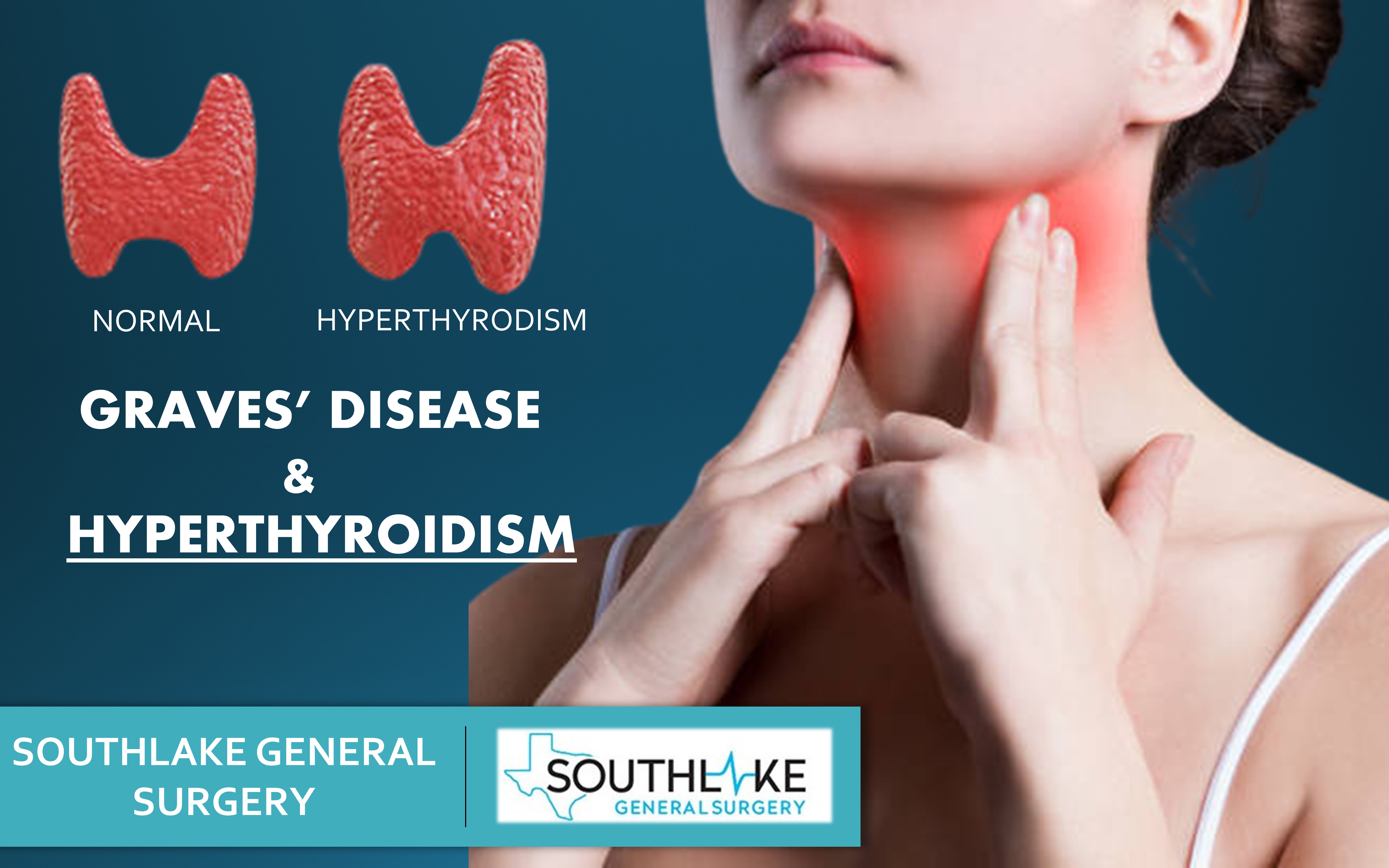Graves’ disease is an immune system disorder. It makes your thyroid gland create an excess thyroid hormone in the body. This condition is called hyperthyroidism. Graves’ disease is the most recognized form of hyperthyroidism.
In Graves’ disease, the immune system of your body produces antibodies called Thyroid-stimulating immunoglobulins that connect with healthy thyroid cells. This condition causes your thyroid to produce more thyroid hormone than normal.
Thyroid hormones influence numerous parts of your body. This may include nervous system function, body temperature, mental health, and other significant components.
Whenever left untreated, hyperthyroidism might lead to weight loss, tension, anxiety, depression, discouragement, and physical or mental fatigue.
Symptoms of Graves’s disease
Both Graves’ disease and hyperthyroidism have almost the same symptoms. These may include:
- Nervousness, hand tremors, fatigue, and muscle weakness
- weight loss
- rapid pulse rate (tachycardia)
- intolerance to heat
- bad temper and difficulty in sleeping
- goitre (swollen thyroid gland)
- recurrent formed bowel movements
In a few cases, individuals with Graves’ disease will encounter swollen, coagulated skin around the shin region. This refers to Graves’ dermopathy.
A few other symptoms an individual may encounter are known as Graves’ ophthalmopathy. This happens when the eyes may appear to be augmented because of the eyelids retracting. Once this occurs, an individual’s eyes may start to swell from your eye sockets.
What are the reasons for Graves’ disease?
Graves’ disease like an autoimmune disorder, where the immune system starts fighting against the healthy cells and tissues in the body. In our body immune system generally creates proteins called antibodies to fight against bacteria and viruses.
These antibodies are delivered exceptionally to focus on the specific intruder. In Graves’ disease, the body’s immune system erroneously creates antibodies considered thyroid-stimulating immunoglobulins that target healthy thyroid cells.
Who all get impacted by Graves’ disease?
Specialists believe that the following variables may influence the risk of fostering Graves’ disease:
- Age
- Gender
- Level of stress
- heredity
Grave’s disease is common in the age group of less than 40 years. If any one of the family members has Grave’s disease, then your risk additionally increases considerably. Women may have 7 to 8 times more oftentimes than men.
To have another immune system disease additionally expands an individual’s risk of emerging Graves’ disease. Diabetes Mellitus Type 1, Rheumatoid arthritis, and Crohn’s disease are a few instances of autoimmune disease.
Diagnosis of Graves’ disease
Your PCP may prescribe lab tests if they speculate Graves’ disease. If anybody in an individual’s family has had Graves’ disease, the PCP might have the option to limit the diagnosis based on the clinical history and physical tests.
Your primary care physician may likewise prescribe some of the accompanying tests:
- thyroid ultrasound
- blood tests
- Thyroid stimulating hormone test (TSH)
- Thyroid stimulating immunoglobulin test (TSI)
- radioactive iodine uptake test
- thyroid-stimulating immunoglobulin (TSI) test
The combined tests report of these may help the doctor to identify Graves’ disease or another kind of thyroid problem.
Treatment of Graves’s disease
Three treatment choices are accessible for individuals with this disorder:
- antithyroid drug treatment
- radioactive iodine (RAI) therapy treatment
- thyroid surgery
Antithyroid drugs Treatment
Antithyroid medications might be prescribed. Beta-blockers may likewise be utilized to decrease the impacts of symptoms until other medicines start to work.
Radioiodine therapy Treatment
Radioactive iodine therapy is perhaps the most widely recognized treatment for Graves’ disease. This treatment expects you to take dosages of radioactive iodine-131 that can be swallowed in the form of a pill.
Thyroid surgery
Thyroid surgery is another alternative, it’s utilized less frequently. Your PCP may suggest a surgical procedure if past treatments haven’t worked accurately or if thyroid cancer is presumed, however, thyroid cancer in the setting of Graves’ disease is uncommon.
Thyroid surgery at Southlake General Surgery may likewise be suggested if an individual is pregnant and can’t consume antithyroid medications. For this situation, a surgical procedure isn’t performed until the second trimester due to the risk of miscarriage or premature delivery.
If thyroid surgery is important, your PCP will remove the total thyroid gland also known as a total thyroidectomy to remove the risk of hyperthyroidism recurring. Total thyroidectomy is the norm of care for individuals with Graves’ disease.
If a patient chooses surgery, then the patient will require thyroid hormone replacement therapy on a continuous premise.
Conclusion
Graves’ disease is a complex autoimmune disorder that causes hyperthyroidism and affects multiple aspects of a person’s health. It is important to acknowledge the symptoms of this condition, which may include feelings of nervousness, noticeable weight loss, and an increased pulse rate. If left untreated, this condition can lead to additional complications such as anxiety, depression, and fatigue.
Graves’ disease originates from a malfunction in the immune system, where antibodies mistakenly attack healthy thyroid cells. Various factors, such as age, gender, stress levels, and family history, contribute to the development of the condition.
The diagnosis process includes a series of tests, such as thyroid ultrasound and blood tests, which assist healthcare providers in customizing the treatment plan. There are several treatment options available for thyroid conditions, including antithyroid drugs, radioactive iodine therapy, and thyroid surgery. Each of these options is suitable for different circumstances and should be considered based on individual needs.
At Southlake General Surgery, we prioritize your health by offering comprehensive thyroid care services. Our team of experts is available to provide guidance and help you choose the most suitable treatment option for your specific needs. It is important to remember that there is hope and effective treatment available for Graves’ disease.
Appointment
To know more about Graves’ disease or Thyroid Surgery at Southlake General Surgery or consultation. Please contact our healthcare expert today at +1(817) 748-0200.

